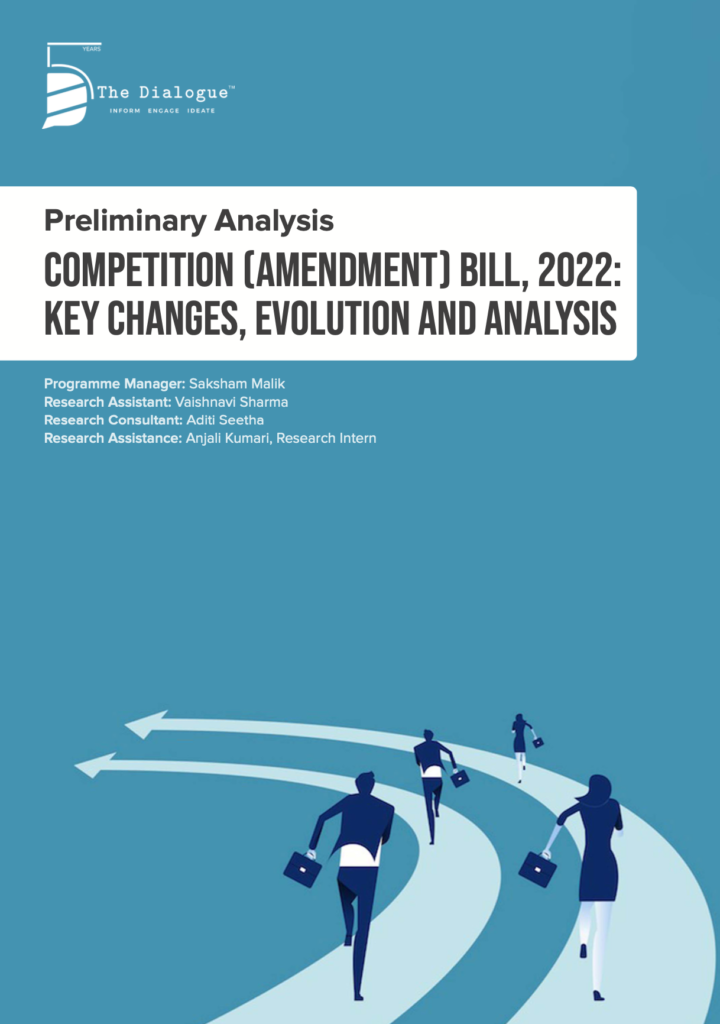This research brief has been formulated with the following objectives to summarise key amendments proposed by the Competition (Amendment) Bill, 2022 and analyse it. It traces the evolution of these changes over the past four years by looking at previous iterations of the Bill and recommendations of experts and provide recommendations on changes that would ensure an efficient and progressive antitrust landscape in the country.
We believe the 2022 Bill is a progressive draft that will equip the Indian antitrust landscape to handle the intricacies of rapidly evolving markets. Following are some of the recommendations to aid in strengthening it further:
Preliminary Recommendations
1. Ensure that the 2022 Bill goes through a consultation process, wherein the intricacies of the implementation and enforcement of the Bill is discussed with key stakeholders.
2. Include ‘buyers’ within the definition of cartel, as provided in the 2020 Bill.
3. Hub & Spoke cartels should not be made per se anti-competitive. Rather, a rule of reason approach should be followed to analyse them.
4. Abuse of dominant position allegations should be subjected to an effects based test, in order to bring it in line with the ethos of the Act.
5. Extend the IPR defence to abuse of dominant position, as was provided in the 2020 Bill.
6. Provide necessary guidance to ensure that the deal value threshold and local nexus requirements are implemented in a consistent manner.
7. Reconsider the scope of ‘control’ to include the ‘material influence’ standard.
8. Ensure effective transparency in the rule making power of the Central Government by providing a formal framework for consultations.
9. Explain the scope of the term ‘urgently in public interest’, to ensure that the exemptions to public consultations for regulations of the CCI are used sparingly.
10. Consider a wider timeline for offering commitments and settlements by parties in the new framework.
Read full analysis here.
